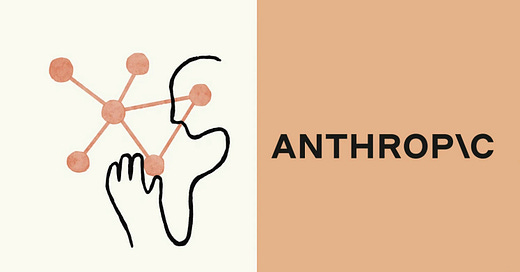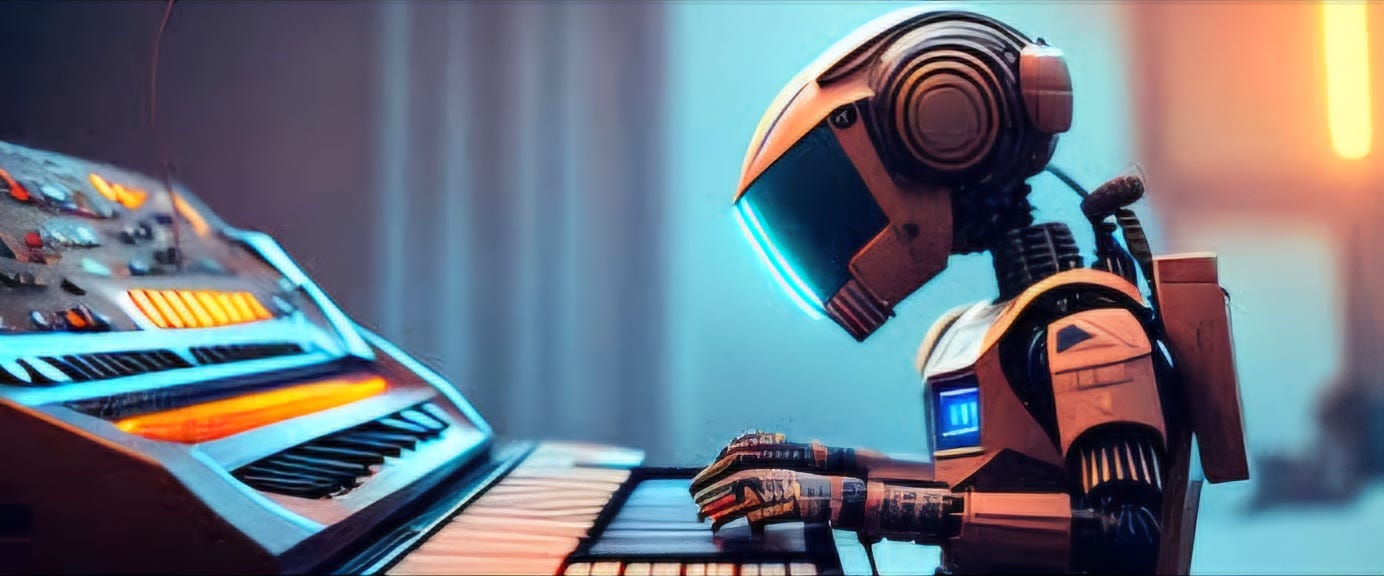Anthropic's Lawsuit | Music Industry Fights Back👨🏻⚖️🎶
UMG and Publishers Secure AI Copyright Protections Against Anthropic
The rapid evolution of artificial intelligence has sparked numerous debates about its implications for Intellectual property rights. In a landmark case, Universal Music Group (UMG), Concord Music Group, and ABKCO have taken a significant step forward in their legal battle against AI company Anthropic. The court recently approved protective measures, or "guardrails," aimed at preventing Anthropic's AI systems from reproducing copyrighted song lyrics without authorisation. This development not only underscores the growing tension between AI innovation and copyright law but also sets a precedent for how such disputes may be handled in the future.
Background: The Lawsuit Against Anthropic
In 2023, UMG, Concord Music Group, and ABKCO filed a lawsuit against Anthropic, alleging that its AI chatbot, Claude, had been trained on lyrics from at least 500 songs by major artists such as Katy Perry, Beyoncé, and The Rolling Stones. The publishers claimed this constituted copyright infringement and sought damages of $150,000 per infringement. They argued that Anthropic's unauthorized use of copyrighted material for training its AI models violated intellectual property laws and undermined the value of their creative works.
Anthropic responded by filing a motion to dismiss the charges by contesting claims of contributory and vicarious copyright infringement as well as violations under the Digital Millennium Copyright Act (DMCA). Despite these legal manoeuvres, the publishers successfully pushed for interim protective measures to safeguard their content while the case continues.
The Court-Approved Guardrails: What They Entail
Judge Eumi K. Lee of the U.S. District Court for the Northern District of California approved a stipulation requiring Anthropic to implement "guardrails" in its current and future AI models. These measures are designed to prevent the unauthorized reproduction of copyrighted song lyrics. Key aspects of the agreement include:
Protective Controls: Anthropic must maintain mechanisms within its Claude AI models to prevent infringing outputs.
Future Compliance: Similar safeguards must be implemented in all future large language models and product offerings.
Notification Mechanism: Publishers can notify Anthropic if they detect failures in these protective measures. Anthropic is required to respond promptly, investigate the allegations, and work in good faith with publishers to resolve any issues.
Detailed Responses: If an issue is identified, Anthropic must provide a written response detailing how it will address the problem or clearly state its intent not to act.
These guardrails represent a significant step toward protecting copyrighted content from unauthorized use by AI systems.
Ongoing Legal Challenges
While the court-approved stipulation marks progress, the broader legal battle remains unresolved. A critical aspect of the lawsuit is the publishers' motion for a preliminary injunction to prevent Anthropic from using copyrighted lyrics for future AI training. This motion is still pending before the court.
The publishers view the guardrails as validation of their claims but emphasise that their ultimate goal is to secure stronger protections for their intellectual property. As UMG stated,
"While Anthropic’s stipulation is a positive step forward, this lawsuit remains ongoing."
UMG's Business-Driven Stance
Universal Music Group's (UMG) aggressive stance against AI-generated music is primarily driven by business interests rather than a pure concern for artists' rights. While UMG claims to champion human creativity and protect copyright, their actions reveal a strategy to maintain control over the music industry's evolving landscape. The company has been outspoken about the need to regulate AI in music creation, arguing that unauthorized use of their artists' content for AI training violates copyright law and existing agreements
However, UMG's approach is not solely about defending artists. The company has shown willingness to engage with AI technology when it aligns with their business model. For instance, UMG partnered with BandLab Technologies to promote "ethical use of AI" in music creation and collaborated with Google to develop tools for creating AI tracks using artists' likenesses legally.
These partnerships suggest that UMG's primary concern is maintaining its position as a gatekeeper in the music industry by adapting to technological changes while ensuring they retain control over content distribution and monetization.
Implications for the Music Industry and AI Development
This case highlights the complex intersection of AI technology and copyright law. For music publishers, it underscores the need to protect creative works from unauthorized exploitation in an era where AI systems can generate text outputs that closely mimic human-authored content.
For AI developers like Anthropic, it serves as a cautionary tale about the importance of respecting intellectual property rights during model training and deployment. The implementation of guardrails could become a standard practice across the industry, influencing how future AI systems are developed and regulated.
Moreover, this dispute raises broader questions about how copyright laws should evolve to address challenges posed by generative AI technologies.
Policymakers may need to consider new frameworks that balance innovation with the protection of creative rights.
Conclusion: A Step Toward Resolution
The court-approved guardrails represent a milestone in the ongoing legal battle between music publishers and Anthropic. While they provide interim protection for copyrighted song lyrics, much work remains to be done to resolve broader issues surrounding AI's use of copyrighted material. This case could set important legal precedents for how intellectual property rights are enforced in the age of artificial intelligence.
As this story unfolds, it will be crucial for stakeholders across industries (artists, publishers, developers, and policymakers) to collaborate on solutions that uphold creativity while fostering technological innovation.
What are your thoughts on balancing innovation with intellectual property rights? Share your perspectives in the comments below or subscribe for more updates on this evolving legal landscape!
Read More:
Join us at Vinyl Culture as we continue exploring ways to preserve and evolve authentic music culture in an age dominated by algorithms and corporate interests. Together, we can make a difference.🫱🏼🫲🏽
In the coming weeks, we'll delve deeper into topics like strategies for meaningful music discovery in the digital & AI age. Together, we can ensure that music remains a vibrant, diverse, and integral part of our lives.😃










